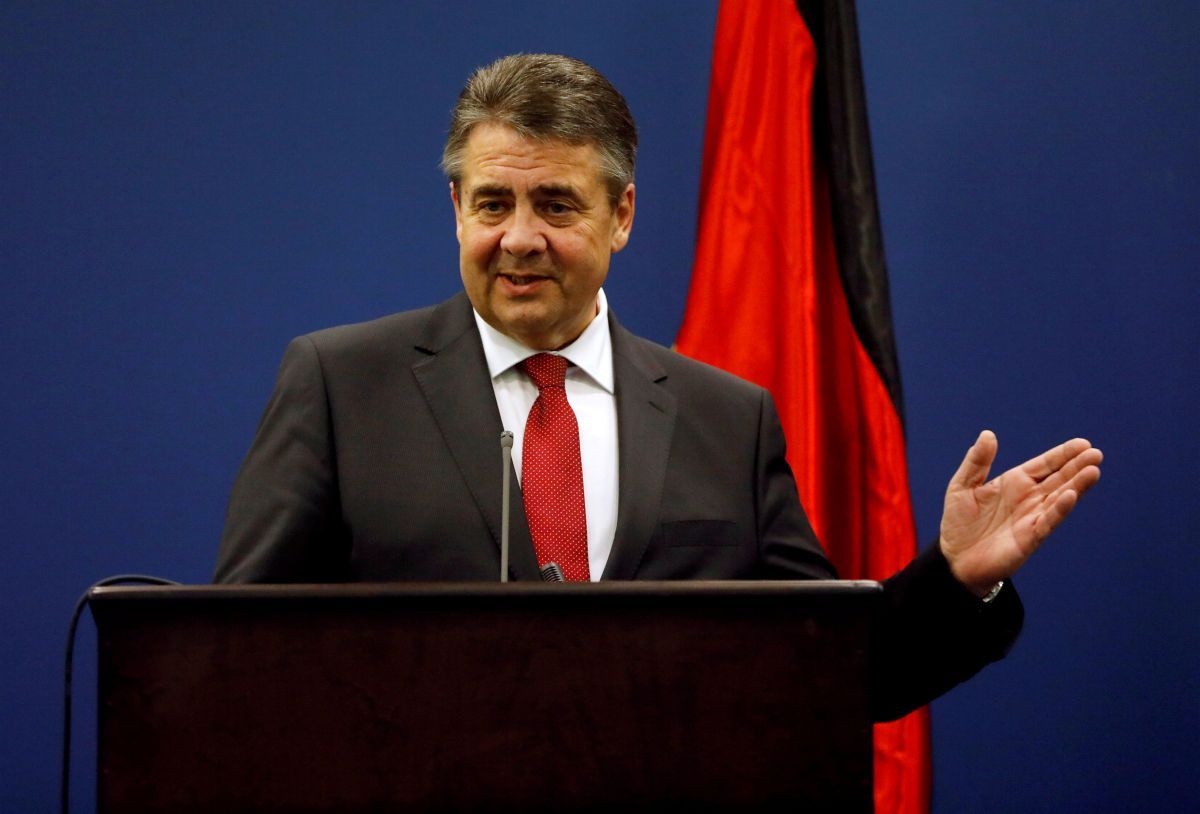
Sigmar Gabriel told reporters after talks in Kyiv with his Ukrainian counterpart, Pavlo Klimkin, on January 3 that such a force would be "essential" for ensuring the territorial integrity of Ukraine, RFE/RL said.
Read alsoKlimkin reminds German counterpart about German business in CrimeaGabriel was scheduled to visit the contact line separating government forces and Russia-backed separatists in eastern Ukraine on January 4, but that leg of the trip was canceled because of poor weather conditions, Klimkin said in a tweet.
He added that the two are planning to reschedule the trip for later in January.
"This has to be a strong, armed mission that is present across the entire territory of the conflict zone," Gabriel said, adding that Germany and France will propose such a peacekeeping mission to the UN Security Council in hopes it will bring about a "lasting cease-fire" in eastern Ukraine.
Read alsoRussia's Navalny calls for election boycott as officials ban him from runningGabriel said the Russian presidential election should not factor into negotiations with the UN on deploying a mission to Ukraine.
"The establishment of a firm peace settlement should not depend on elections in Russia," he said. "And I hope that we will be able to adopt a realistic and appropriate mandate for the UN mission before the election in Russia is held."
Russian President Vladimir Putin, who is expected to easily win the March 18 vote, has backed establishing a UN peacekeeping mission only along the front line in eastern Ukraine that separates territory controlled by Kremlin-backed separatists from the rest of Ukraine.
The Kremlin also opposes placing armed UN peacekeepers along parts of its border with Ukraine not under Kyiv's control.
But Ukraine and its Western allies oppose the narrow role Russia has proposed for UN peacekeepers and have pushed for a broader role for the UN in an attempt to quell the conflict that has killed more than 10,300 people since it broke out in 2014.
Gabriel's visit to Ukraine comes days after Washington announced it will provide Ukraine with lethal defensive weapons, reportedly including powerful U.S. antitank missiles, for the first time, in a decision that angered Moscow.
Klimkin said the weapons would only be used for defensive purposes and should not spark an escalation of the war.
"These weapons can and will be used in case of a provocation by Russia," said Klimkin. "They will not be used for offensive purposes."
Gabriel, however, questioned the U.S. decision to sell additional weapons to Ukraine.
"If there is one thing there is too much of in this region, that is weapons," Gabriel said. "We in Germany take a rather skeptical view of arms deliveries being able to resolve the conflict."

